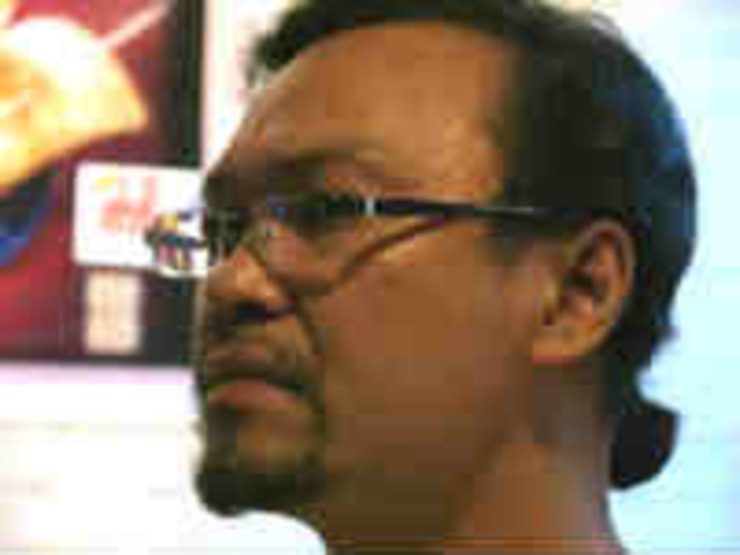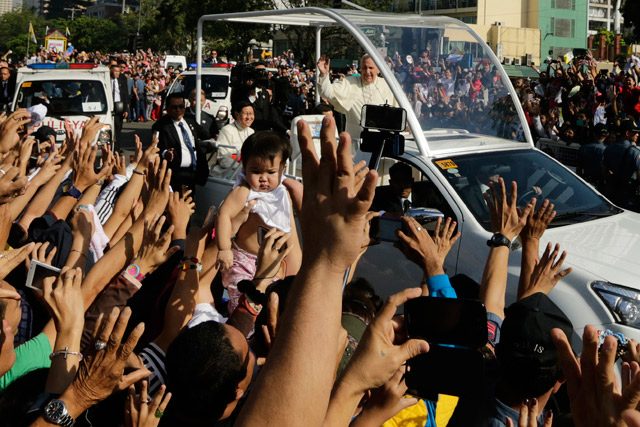SUMMARY
This is AI generated summarization, which may have errors. For context, always refer to the full article.

After the four-day visit of Pope Francis, as many Filipinos were gripped by uncontrollable melancholy from the feeling of being spiritually left orphaned, only one thing should preoccupy our minds: “So, what now?”
Another ningas kugon, perhaps.
Undoubtedly, the faith of the 78 million Filipino Catholics, 37% of whom claim they are regular church-goers, and 29% claim they are religious, are re-kindled and fired up. As for the rest of the “nominal” and “occasional” Catholics, I am sure their hearts have also been touched to certain degree. But the real encounter with Pope Francis really began on January 19, when his official plane flew him back to the Vatican.
How do we, for instance, respond to his message delivered to Malacanang that in achieving national development, it is essential that we never lose of the “moral imperative of ensuring social justice and respect for human dignity”? And he situated this in the biblical tradition, “The great biblical tradition enjoins on all peoples the duty to hear the voice of the poor.”
This entails the rejection of “every form of corruption which diverts resources from the poor, and to make concerted efforts to ensure the inclusion of every man and woman and child in the life of the community.”
How about his challenge to the young people during his speech at UST that, “Real love allows you to spend yourselves, to leave your pockets empty”? Then he raises the challenge of the poor: “Do you think of the poor? Do you feel with the poor? Do you do something for the poor? Do you ask the poor to give you the wisdom they have?”
And giving credence to Catholic bishops, he cited them: “the Church in the Philippines is called to acknowledge and combat the causes of the deeply rooted inequality and injustice which mar the face of Filipino society, plainly contradicting the teaching of Christ.”
And in Luneta, he said, “But through sin, man has disfigured that natural beauty; through sin, man has also destroyed the unity and beauty of our human family, creating social structures which perpetuate poverty, ignorance, and corruption.”
And the Pope, like a real father, gave command to his childrren: “Become a beggar. This is what you still lack. Learn how to beg.”
I can still go on with so many provoking and politically loaded quotes from Pope Francis, not only from speeches in the Philippines, but also from his sermons, encyclicals, and speeches delivered elsewhere. But what is the underlying unifying theme of his message that Filipinos should have mulled over, reflected on with all seriousness?
Cardinal Jorge Mario Bergoglio’s chosen papal name “Francis” already speaks for itself. It is solidarity with the poor. As he wrote in his encyclical, “I want a poor church for the poor.” This is not new! Church’s preferential love for the poor is as old as the teachings of the Old Testament. And this love of the poor was central to the message of the historical Jesus, and practiced by the early Christian communities “who had believed [were] together and had all things in common.
The classic book of Karl Kautsky, the successor of Engels, about the social origins early Christianity, even admits the proletarian origin of early Christianity.

Hard facts
So, after the last hurrahs, festive dances, selfie moments with the Pope, unexpected sobbings, electrifying joys, all flowing from contagious charisma of the Pope, the Philippine Church and 76 million Catholics must now face the hard facts: the share of the 10% richest Filipinos was over 70% of the country’s wealth.
The combined wealth of the 50 richest Filipinos is equivalent to roughly one-fourth or 26% of the country’s Gross Domestic Product (GDP).
At least 9.3 million Filipinos considered themselves food-poor or hungry while 55%, or 12.1 million Filipino families, considered themselves poor; 11.8 millions are jobless.
Only 1% of the entire Philippine population still owns almost one-fifth of the country’s total agricultural lands while 2 million farmers are left to divide another one-fifth among themselves.
One in 5 women aged 15-49 has experienced physical violence since age 15; 14.4% of married women have experienced physical abuse from their husbands.
In the face of these revolting social and economic inequalities, the hurrahs, sobbings, selfie moments, and the moral renewal that we felt are reduced to nothing. We cannot turn away our gaze from these scandalous “situations of evil” and casually pretend that the Pope was indifferent about them.
This is the real message of the Pope that we missed.
Focus
Regrettably, the mainstream mass media chose to elude this message by softening its moral and religious sting. They focused more on the trivial – from the love life of the Pope to his skullcup (zucchetto) being blown away by the gusty winds, from the personal testimonies of ordinary people to the reporters themselves betraying their Catholic faith by being blown away in the Pope’s presence.
The celebritization of the Pope’s image, or turning the Pope into a rock star, into “Pop” Francis, muted and bled away the prophetic message of the Pope.
Majority of our people chose to highlight the “spiritual,” accepted the moral renewal, and media commentators spent hours talking about the spontaneous smiles of the rock star Pope, while toning down his revolutionary challenge.
We may be forgiven for this faux pas as we were awed by his presence, but now that we truly felt his absence, the prophetic journey of “weeping” with the poor cannot be postponed.
Good news though! One need be a Popefan or a Catholic to take up this challenge. One only has to be capable of weeping with the poor by encountering them in their most abject conditions. As one post at Facebook said it all, “Mula sa Papa tungo sa masa!” (From the Pope towards the masses) – Rappler.com
Gerry Lanuza is a sociology professor at the University of the Philippines Diliman.
Add a comment
How does this make you feel?
There are no comments yet. Add your comment to start the conversation.